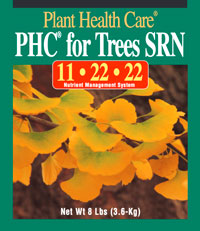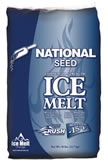Grass Seed Farmers Expect Low Yields Due to Drought

Drought and heat have stressed Oregon's grass seed crops in multiple ways, which has farmers expecting a substantial decrease in yields now that harvest is underway.
It's still too early to know the exact impact, but farmers are preliminarily reporting yield reductions of 20-50 percent, said Mark Simmons, executive director of the Oregon Grass Seed Bargaining Association.
"This year is extremely unusual. It's the equivalent of the 50-year flood," he said. "It's really tough for farmers who grow grass seed."
With less water available, grass cannot carry as much sugar to its seed, said Tom Chastain, seed crop physiology professor at Oregon State University.
That sugar is converted to starch that's used to "bulk up" the embryonic plant and the "endosperm" that feeds it within the seed, he said. This year, dry conditions in spring have hindered grasses from filling the seed, reducing its weight.
Enzymes that convert sugars to starch are also affected by high temperatures, said Chastain. "The heat is exacerbating the problem because it interferes with some of those enzymes."
Not only are seeds lighter, but there are also fewer of them — drought hinders pollination and causes the "abortion" of seeds, he said.
"We have a lot of producers who are very concerned right now," Chastain said.
During 1992, which had weather conditions similar to this year's, grass seed yields in Oregon's Willamette Valley were cut by 11-14.5 percent overall, he said. That average includes irrigated acres, so dryland farmers likely experienced more severe impacts.
Chastain said the outlook for 2015 currently appears bleaker, with growers reporting average yield losses of 25 percent.
"Hopefully, that's a worst-case scenario," he said.
Ron DeConinck, a farmer near Woodburn, said he's expecting a 20 percent reduction in yields despite irrigating his fields, though that figure remains speculative at this point.
Fields that were irrigated twice seem to be faring well but those only irrigated once are clearly damaged, he said. "There were a few days there, it literally burned it."
Rodney Hightower, a farmer near Junction City, said growers in the southern Willamette Valley are expecting yield losses of 30 percent.
His farm produces several grass types, as well as specialty seeds and some grain, and the drought stress has affected most of them, he said. "This year, being diversified may not help a whole lot."
Marion Ag Service's seed cleaning operation is 10 days ahead of schedule due to the warm weather, which is the earliest that the company's seed specialist, Scott Banyard, can remember.
An acre usually generates roughly 2,500 pounds of grass seed, but this year the range is about 1,700-2,000 pounds to the acre, said Banyard.
The only upside to the low yield expectations is that demand for grass seed may consume this year's crop as well as leftover inventories. If that happens, growers will be in a strong market position next year, said Simmons. "From that perspective, we're hopeful."
Farmers in the Willamette Valley have scaled back their grass seed production in favor of other crops in recent years, which has reduced supplies and improved prices, he said.
Prices are expected to exceed 80 cents per pound for perennial ryegrass and 70 cents per pound for tall fescue, Simmons said. To compare, during the market downturn between 2007 and 2009, perennial ryegrass was fetching about 46 cents per pound while tall fescue sold for about 30 cents per pound.
"We had a whole year's extra supply of seed on hand," he said.
PHC for Trees SRN 11-22-22

PHC for Trees SRN 11-22-22 is a fully soluble product that provides both chemical and biological fertility. Its chemically-based elements address trees' immediate nutritional needs, while its beneficial bacteria will help to sustain fertility over the long term.

National Seed's New Commercial Strength Ice Melt

Blue crystals help provide efficient application and even ice melting. Melts ice and snow to -15 degrees. Safe for use on treated wood and concrete.
For more information contact your sales rep.
Upcoming Events
 Illinois Arborist Association 33nd annual trade show conference Illinois Arborist Association 33nd annual trade show conference
October 20-21, 2015
Holiday Inn/Tinley Park Convention Center
18501 South Harlem Ave
Tinley Park, IL 60477
More information
 The 2015 ILCA Annual Party and Member Meeting The 2015 ILCA Annual Party and Member Meeting
Thursday, November 5, 2015 5pm-8pm
Two Brothers Roundhouse
205 N. Broadway
Aurora, IL 60505
More information
[top]
|